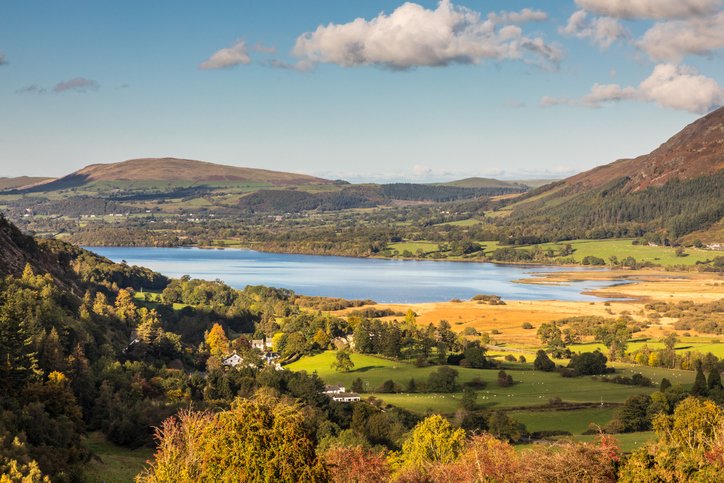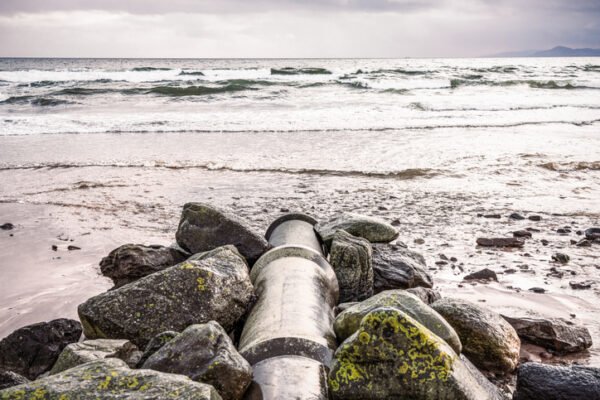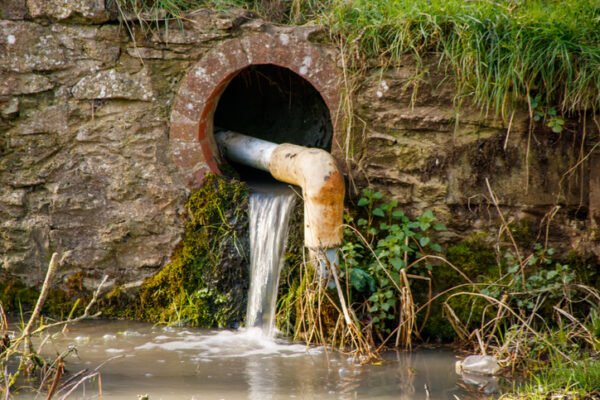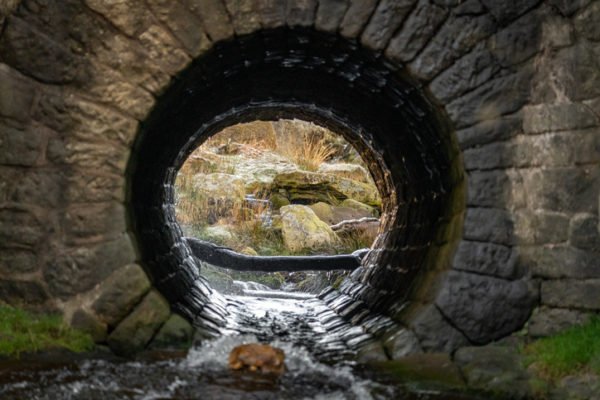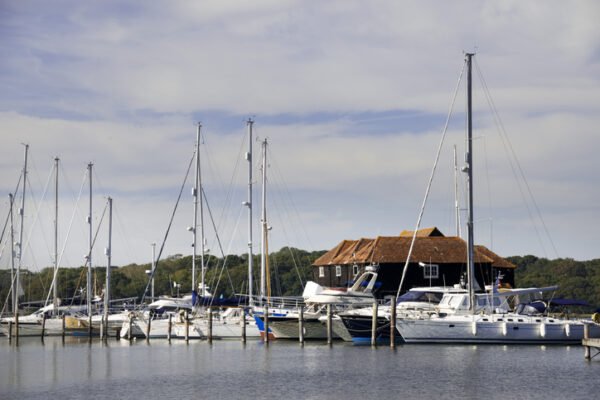UK’s harmful algal blooms
Studies have found that sewage being released into natural ecosystems elevates concentrations of nutrients, pathogens, endocrine disruptors, heavy metals, pharmaceuticals, recreational drugs and pesticides in the environment.
Aside from the chemical content, the release of sewage into slow-moving water can promote blooms of toxic blue green algae that can kill fish and aquatic plants, and animals that swim in the water or drink it, and can cause severe illnesses in humans.
‘Harmful algal blooms’ like these have been spotted in lakes including the Lake District’s Lake Windermere and Derwentwater, and symptoms seen include rashes, eye irritation, vomiting, diarrhoea, fevers and joint pain.
Affected sites
The protected nature sites most heavily hit with sewage spills last year included some of England and Wales’ most loved and well-known destinations.
The Solent and Dorset Coast, a large Special Protected Area spanning West Sussex, Isle of Wight and Dorset coasts, received 14,174 hours of sewage spills last year. Bognor Regis (Aldwick), a coastal town popular during the holiday season, falls within the SPA and has a ‘Poor’ bathing water status this year. Human waste was identified as the main cause of pollution.
The River Derwent and Bassenthwaite Lake SAC/Bassenthwaite Lake SSSI, encompassing parts of Cumbria, including the Lake District, was also one of the worst-hit areas, receiving 6,673 hours of sewage in 2022.
Pembrokeshire Marine SAC, which extends around the Pembrokeshire coast and offshore, is one of the largest marine designated SACs. It received 6,997 hours of sewage last year.
River Usk/Afon Wysg SAC runs through the Brecon Beacons National Park, which was recently renamed Bannau Brycheiniog in the Welsh language. 9,717 hours of sewage poured into this SAC last year.
River Wye/Afon Gwy (England and Wales SACs) is an area that has been in the spotlight recently because of the high levels of agricultural water pollution currently damaging the river. The area also receives high amounts of sewage releases, which totalled 16,475 hours last year.
Plymouth Sounds and Estuary SAC, which straddles the borders of Devon and Cornwall, is another popular holiday destination that was heavily hit with sewage discharges, receiving 11,436 hours in 2022. Earlier this year, the utility company South West water was fined £2.1 million for multiple illegal sewage incidents dating back to 2016, including one discharge from Torpoint sewage treatment works into Plymouth Sounds.
Morecambe Bay and Duddon SPA (also an SAC) received 14,786 hours of sewage. Locals have reported issues with swimming amongst human faeces around the bay on visits to the beach after heavy rainfall. The newspaper Lancs Live reported that people were avoiding swimming in the sea and had described a strong odour coming from the coastline.
Humber Estuary SAC, SSSI, Ramsar, SPA received 3,470 hours of sewage. In 2019, researchers found high levels of pharmaceuticals in the water here, with the highest concentrations of ibuprofen found on the globe, this came mostly from regular discharges from wastewater treatment works but raw sewage also contributed.
River Avon SAC, which runs from Bristol to Bath received 6,960 hours. Swimmers have reported getting seriously ill from swimming in this river.
 Play Video about This Rock Might Just Save The World
Play Video about This Rock Might Just Save The World Play Video about Play 2 hours of rock
Play Video about Play 2 hours of rock Play Video about Play 2 hours of brook
Play Video about Play 2 hours of brook Play Video about Play 2 hours of sheep
Play Video about Play 2 hours of sheep

















